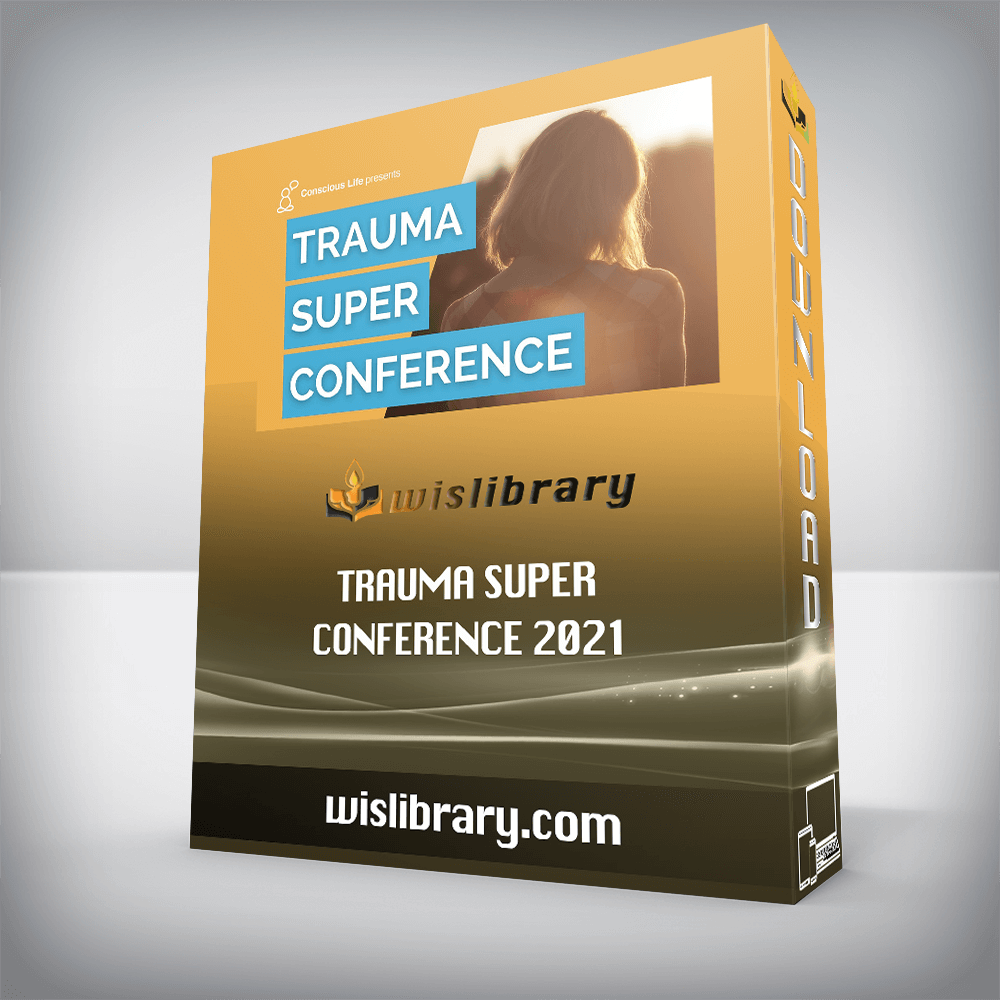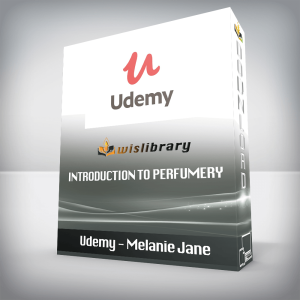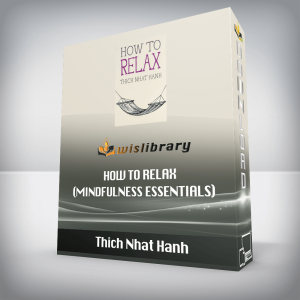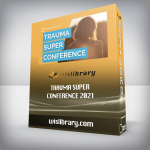How to best support someone dealing with addiction or psychiatric disorders related to trauma, Format File: 98 MKV MP4, This course is available for Pre-order and delivery within a few days.Trauma Super Conference 2021Trauma Super Conference 2021Dr Gabor Maté: The 5 levels of compassionThe inner critic and the importance of defending from itUnderstanding the 5 levels of compassionHow to begin to cultivate more compassion for yourselfDr Nzinga Harrison: Trauma, substance use and psychiatric disordersHow A.C.E. scores predict trauma and addiction responsesThe whole person treatment necessary to help in recoveryHow to best support someone dealing with addiction or psychiatric disorders related to traumaDr Arielle Schwartz: Becoming free from dissociationWhat dissociation is and why it happensHow to recognize dissociation in yourself and othersPractical strategies to support healing and learning to be presentRafaella Fiallo: How trauma & PTSD can impact your sex lifeThe similarities between PTSD and sexual traumaReleasing shame and redefining sex and pleasurePractical tips for overcoming erectile dysfunction, vaginal dryness, post-coital dysphoria and moreJessica Lahey: The addiction inoculationHow genetics and environment impact substance use disorder riskWhat the protective factors are that can offset Adverse Childhood ExperiencesWhy honest, factual conversations about drugs and alcohol empower kids to make good choicesDr Abdul-Ghaaliq Lalkhen: The root cause of painHow pain is caused in the brain not bodyThe importance of mood and emotions in painHow to change your relationship with painSaid Dawlabani: Navigating the living journey of griefWhy grief is rarely a neat and tidy processHow to navigate the limitations of the healthcare industryThe journey of cultivating acceptanceDonna Jackson Nakazawa: Trauma and immune responses in the brainHow chronic unpredictable stress impacts our immune systemWhat we now understand about the tie between the brain’s immune system responses and mental health and autoimmune diseaseHow you can use narrative practices based in science to re-program your brain’s messages.Cornelia Kastner: Managing stress and burnout after traumaUnderstanding the correlation between stress and burnout and traumaHow to prevent stress and burnoutHow to heal after burnoutDr David Hanscom: Transforming chronic painWhy surgery is rarely effective for chronic painThe real root cause of most chronic painPractical steps for working with chronic painDr Peter Levine: Self-regulating for trauma healingWhy co-regulation and self-regulation are both importantPractical exercises for self-regulationWhy trusting the wisdom of our body is so importantHilary Jacobs Hendel: Using the change triangle for emotional educationHow defenses protect us from the emotions of traumatic eventsUsing the Change Triangle to bypass defenses to feel core emotionsAccelerated Experiential Dynamic Psychotherapy (AEDP)Dr Frank Anderson: Healing complex PTSD using IFS therapyWhat is Complex PTSDWhat happens when parts of ourselves experience repeated extended traumaHow we can use IFS therapy to heal our wounded parts and experience Post Traumatic GrowthKaren Ortner: Tapping to release resistance to healing traumaWhat causes resistance to healingHow to recognize your own resistancePractical tapping techniques to work with your resistanceJason Prall: Embracing our traumatized partsHow trauma causes coping strategies to developThe impact of missing experiencesHow to cultivate inner trust and curiosity for healingDr Darryl Tonemah: Modeling trauma techniquesThe role of sovereignty in healing traumaHow music can help us learn to self-regulateWhat a tornado taught Dr Tonemah about traumatic experiencesDr Sophia Graham: Healing trauma with DBT & radical self-acceptanceWhat dialectical behaviour therapy is and how it supports trauma healingUnderstanding and applying DBT & radical acceptanceHow to use radical acceptance with traumaPaul McKenna: Havening techniques for healing traumaThe importance of the unconscious in healing traumaWhy humor can be so important in our darkest momentsHow to use Havening techniquesDeirdre Fay: Becoming safely embodiedWhy triggers can be a tool for transformationWhat our attachment patterns tell us about our traumaHow we can build tiny steps over time toward transformationRoxy Manning: The impact of micro-aggressions and how to respondUnderstanding the impact of microaggressions and why they’re traumaticHow to respond if you’re the receiver of microaggressionsHow to respond if you’re the “actor†of a microaggressionJ.C. Hall: Hip hop therapyHow Hip Hop developed as a narrative community building toolWhy teaching young people how to create Hip Hop gives them skills outside the music studioWhy it is absolutely crucial that adults listen and pay attention to the music their kids listen to without judgementThomas Hübl: Healing our collective traumaThe impact of our ancestors on our lives nowThe danger of spiritual bypassingWhat true healing looks and feels likeDr Stephen Porges: Trauma as a lens to understand cultural mistrustHow trauma causes us not to trustPolyvagal theory as a lens to understand conspiracy theoriesHow to engage constructive dialogue with those with different viewsMichelle Johnson: Processing collective griefUnderstanding collective griefHow spiritual practice can support processing collective griefHow grieving is connected to liberationDr Claudelle Glasgow (Dr g): Trauma healing: remembering to forgetWhat remembering is in a trauma contextThe costs and benefits to rememberingDaily remembering practicesCaroline Myss: Why people don’t healWoundology and how it stops healingThe power of prayerThe nature of organic divinityDr Alex Iantaffi: Understanding and healing from gender traumaUnderstanding gender traumaHow gender trauma has been passed down from generation to generationHow to heal from gender traumaRabbi Dr Tirzah Firestone: Healing intergenerational traumaThe impacts of intergenerational traumaUnderstanding ancestral healing and how to put it into practice (includes demo)The positive individual and collective impact of ancestral healingVimalasara Mason-John: Recovering from sexual assaultHow sexual assault affects us on multiple levelsWhat supports healing on each levelPractical steps to begin and support your healing journeyKimberly Weeks: Trauma and oppressionWhy dismantling power structures starts with internal workHow oppressive ideologies impact intimate relationships and community organizationsWhat nervous system regulation has to do with liberationDr Patrice Douglas: Mental health and racial traumaThe impact trauma has on mental healthWhy it’s important to understand cultural context when discussing trauma and mental healthHow to be supportive to BIPOC communitiesDr Kathy Hagler: Healing organizational traumaThe parallels of individual trauma and organizational traumaThe importance of communication and dialogueWhy culture is at the heart of everythingZayna Ratty: The trauma of concealmentUnderstanding what concealment is and how it links to traumaHow and why people code-switch and concealStrategies for recoveryRachel Brathen: How to love and let goWhy we need to shed our defenses first in order to healWhat Rachel learned about how to heal childhood woundsHow movement is an integral piece of healingHeather Monroe: Healing relational traumaWhy feeling unsafe or unloved will cause traumaWhat continued mistreatment tells our nervous systemHow to heal our relational wounds and foster connectionMelanie Tonia Evans: Recovering from narcissistic abuseHow to know if you’re in a relationship with a narcissistThe first steps to take when trying to recover from a narcissistic relationshipWhy “self-partnering†is important in recovery from traumaDavid Cooley: Restorative relationship conversationsWhat the Restorative Relationship Conversation (RRC) model isHow the RRC model promotes approaching conflict from a new paradigmHow to apply the RRC model and practical tips for conflict transformation and relationship repairDr Judith Orloff: The gifts of being an empathHow to recognise you are an empathHow trauma relates to being an empathHow to cultivate the gifts of being an empathMel Cassidy: Trauma informed nonmonogamyThe importance of taking a trauma-informed approach to nonmonogamyRecognising abusive behavior in nonmonogamous relationshipsThe four pillars of trauma informed relatingDr Richard Kagan: Treatment for complex PTSD in children and familiesHow resiliency focused solutions heal trauma and attachment woundsThe difference between treating behavioral problems and treating traumaWhat safety includes when children experience traumaTuriya Hanover: Healing the trauma of the feminineHow trauma causes disconnectionThe impact of patriarchy on the feminineHow to support healing and coming home to the bodyDr Liz Powell: Kink and traumaThe connection between kink and traumaHow to establish safe sex practices before, during and after sexThe therapeutic elements of kinkDr Ava Pommerenk: Recovering from betrayalWhat the different types of betrayal areWhy betrayal is normalHow to recover from betrayalAlex Howard: The 3 core emotional needsThe impact of not having your emotional needs metHow to identify the impacts in your lifeHow you can learn to meet your emotional needs in your life nowDr Pedram Shojai: Committing to the journey of trauma healingThe power of mindfulness to support healingWhy showing up to the healing path is so importantThe power of intention and attentionA H Almaas: Presence and awakening on the healing pathWhat awakening isThe problem with identifying with our egoHow presence can be a support to healingHeather Mason: Yoga therapy for trauma & PTSDThe importance of learning to self-regulate the nervous systemWhy working with the breath is so importantHow to get started with yogaDr David Treleaven: Trauma sensitive mindfulnessThe connection between trauma and mindfulnessThe relevance of the window of tolerance to COVID and trauma-sensitive mindfulnessPractical tips for meditators and yoga/meditation/mindfulness teachersDr Joe Dispenza: You are the placeboHow placebo worksHow to tap into your own healing potentialPractical exercises for healingHolly Wood: Healing sexual traumaWhat the overt and covert causes of sexual trauma areWhere to begin in your journey to heal sexual traumaWhy partners are vital in the process of post traumatic growthBritt Frank: The science of stuckHow self-help myths are harmful to healingWhy you can’t think your way out of traumaHow understanding our parts is one of the keys to getting unstuckDr Cathy Malchiodi: Expressive arts therapyWhy talk therapy is limited when it comes to healing and integrating traumaFour main practices of somatosensory psychotherapyHow we increase our circle of capacityCarolyn Sargentson: The power of the exhaleWhy our stories are good predictors of our breath patternsHow our breath can restore individual and group nervous systemsHow to find your own inner healing power (includes 20 minute guided breathing meditation)Anat Baniel: Integration using the brain body connectionHow movement and neuroplasticity partner in healing and integration9 essentials for positive brain changesWhy it is essential to move from fixing to connectingMichael Stone: Neurodynamic breathworkHow breathwork accesses your inner guidance and inner healing capabilityWhat you need in order to engage in breathwork from anywhereHow breathwork can give you a tool toward healing your trauma (includes 20 minute guided session)Dr Terence Ching: Understanding obsessive compulsive disorderWhat OCD is and how it can be related to traumaWhy OCD attacks that which is most significant for a personHow psychedelics may be used to treat OCD in the futureDr Meg-John Barker: Healing trauma by knowing your different partsWhat is plurality and how it relates to traumaUnderstanding the impact of trauma in terms of an inner system of partsPractical tips for getting to know your parts and healing traumaDr Pilar Jennings: Healing trauma with psychoanalysis and buddhismHow to understand trauma from a psychoanalytic perspectiveWhy presence and trust are so important in healingThe power of going slow on the healing journeyDr Eva Detko: Healing internal family systemsWhat is our internal familyHow to recognise our different partsHow to support healing of our different aspectsAndrew Penn: The future of psychedelics for healing traumaHow psychedelic medicine helps in psychotherapyWhy psychedelic experiences aren’t enough to heal traumaWhen psychedelic drugs may be available for treatmentNick Ortner: Resolve your anxiety with tappingWhat tapping isHow to tap on yourselfPractical techniques to start tapping right nowIrene Lyon: Why a somatic approach is so criticalWhat a somatic approach isHow trauma is held in the bodyWhy respecting our defenses is so importantJodi Cohen: Balancing the vagus nerve with essential oilsWhy intuition is so important in navigating griefHow the vagus nerve connects our mind and bodyHow to work with essential oilsCrystle Lampitt: The myth of self-sabotage: getting unstuckWhy NARM is a cutting-edge model for addressing attachment, relational and developmental traumaWhat role trauma responses play in self-sabotageHow the NARM survival styles relate to our needs and behaviorsTamara Andreas: Trauma as a gateway to core transformationWhy access to core states is so important for healingHow to understand the needs of our different partsPractical steps to start working with your inner partsMonique Koven: Creating inner safety for healing traumaWhy validation is critical when healing traumaHow to cultivate inner safety on the trauma healing journeyWhy setting boundaries helps us realize which relationships are safeDr Tom O’Bryan: The 5 pillars of inflammationWhy your microbiome is so important to your healthThe impact of food intolerances on your overall healthHow to cultivate healing in your microbiomeDr Ameet Aggarwal: Healing anxiety & depression with natural medicineHow inflammation affects our mind and emotionsThe power of family constellations for healingPractical steps to start your healingDr Christine Schaffner: Healing the toxic effects of traumaHow trauma creates a toxic impact in the bodyThe importance of healing on different levelsPractical tools to support healing the toxic effects of traumaOcean Robbins: Food as medicine for healing traumaWhat drives resistance to changing food habitsFoods that support trauma healingHow to make responsible food choicesDr Aimie Apigian: The biology of traumaThe impact of attachment disorders on traumaHow trauma is stored in the bodyWhy working with biology and psychology together is so importantBrian Vaszily: Freedom from the trauma of agingWhy aging is more in the mind than bodyThe power of right actionsHow to avoid toxic beauty productsTrudy Scott: Neurotransmitter imbalances and high cortisol in PTSDThe powerful role of neurotransmittersHow low GABA can affect your mind and emotionsWhy addressing high cortisol can be so important for healingZeeba Khan: Ayurveda to heal & prevent illness after traumaUnderstanding what Ayurveda is and how it works on the 4 bodiesHow Ayurveda can support trauma healing and help prevent illness from traumaPractical tips for a balanced and healthy lifestyleDr Elena Villanueva: Using your thoughts, actions and beliefs for healingHow the body responds to our thoughts, words, and emotionsWhy perpetual activation of the sympathetic nervous system rewires our brains and bodiesHow trauma changes our DNADr David Perlmutter: Uric acid and balancing your metabolismWhat is uric acid and how it affects usHow to support balanceHow to optimise our body’s ability to healAndrea Nakayama: Addressing ancestral and in-utero traumaHow ancestral and in-utero trauma can affect usThe importance of a personalised approach to healingWhy core principles such as sleep and digestion are so important to healingIn addition to these fantastic talks, we also have some great bonus content for you including yoga, guided meditations and clips from real-life therapy sessions.The inner critic and the importance of defending from itUnderstanding the 5 levels of compassionHow to begin to cultivate more compassion for yourselfDr Nzinga Harrison: Trauma, substance use and psychiatric disordersHow A.C.E. scores predict trauma and addiction responsesThe whole person treatment necessary to help in recoveryHow to best support someone dealing with addiction or psychiatric disorders related to traumaDr Arielle Schwartz: Becoming free from dissociationWhat dissociation is and why it happensHow to recognize dissociation in yourself and othersPractical strategies to support healing and learning to be presentRafaella Fiallo: How trauma & PTSD can impact your sex lifeThe similarities between PTSD and sexual traumaReleasing shame and redefining sex and pleasurePractical tips for overcoming erectile dysfunction, vaginal dryness, post-coital dysphoria and moreJessica Lahey: The addiction inoculationHow genetics and environment impact substance use disorder riskWhat the protective factors are that can offset Adverse Childhood ExperiencesWhy honest, factual conversations about drugs and alcohol empower kids to make good choicesDr Abdul-Ghaaliq Lalkhen: The root cause of painHow pain is caused in the brain not bodyThe importance of mood and emotions in painHow to change your relationship with painSaid Dawlabani: Navigating the living journey of griefWhy grief is rarely a neat and tidy processHow to navigate the limitations of the healthcare industryThe journey of cultivating acceptanceDonna Jackson Nakazawa: Trauma and immune responses in the brainHow chronic unpredictable stress impacts our immune systemWhat we now understand about the tie between the brain’s immune system responses and mental health and autoimmune diseaseHow you can use narrative practices based in science to re-program your brain’s messages.Cornelia Kastner: Managing stress and burnout after traumaUnderstanding the correlation between stress and burnout and traumaHow to prevent stress and burnoutHow to heal after burnoutDr David Hanscom: Transforming chronic painWhy surgery is rarely effective for chronic painThe real root cause of most chronic painPractical steps for working with chronic painDr Peter Levine: Self-regulating for trauma healingWhy co-regulation and self-regulation are both importantPractical exercises for self-regulationWhy trusting the wisdom of our body is so importantHilary Jacobs Hendel: Using the change triangle for emotional educationHow defenses protect us from the emotions of traumatic eventsUsing the Change Triangle to bypass defenses to feel core emotionsAccelerated Experiential Dynamic Psychotherapy (AEDP)Dr Frank Anderson: Healing complex PTSD using IFS therapyWhat is Complex PTSDWhat happens when parts of ourselves experience repeated extended traumaHow we can use IFS therapy to heal our wounded parts and experience Post Traumatic GrowthKaren Ortner: Tapping to release resistance to healing traumaWhat causes resistance to healingHow to recognize your own resistancePractical tapping techniques to work with your resistanceJason Prall: Embracing our traumatized partsHow trauma causes coping strategies to developThe impact of missing experiencesHow to cultivate inner trust and curiosity for healingDr Darryl Tonemah: Modeling trauma techniquesThe role of sovereignty in healing traumaHow music can help us learn to self-regulateWhat a tornado taught Dr Tonemah about traumatic experiencesDr Sophia Graham: Healing trauma with DBT & radical self-acceptanceWhat dialectical behaviour therapy is and how it supports trauma healingUnderstanding and applying DBT & radical acceptanceHow to use radical acceptance with traumaPaul McKenna: Havening techniques for healing traumaThe importance of the unconscious in healing traumaWhy humor can be so important in our darkest momentsHow to use Havening techniquesDeirdre Fay: Becoming safely embodiedWhy triggers can be a tool for transformationWhat our attachment patterns tell us about our traumaHow we can build tiny steps over time toward transformationRoxy Manning: The impact of micro-aggressions and how to respondUnderstanding the impact of microaggressions and why they’re traumaticHow to respond if you’re the receiver of microaggressionsHow to respond if you’re the “actor†of a microaggressionJ.C. Hall: Hip hop therapyHow Hip Hop developed as a narrative community building toolWhy teaching young people how to create Hip Hop gives them skills outside the music studioWhy it is absolutely crucial that adults listen and pay attention to the music their kids listen to without judgementThomas Hübl: Healing our collective traumaThe impact of our ancestors on our lives nowThe danger of spiritual bypassingWhat true healing looks and feels likeDr Stephen Porges: Trauma as a lens to understand cultural mistrustHow trauma causes us not to trustPolyvagal theory as a lens to understand conspiracy theoriesHow to engage constructive dialogue with those with different viewsMichelle Johnson: Processing collective griefUnderstanding collective griefHow spiritual practice can support processing collective griefHow grieving is connected to liberationDr Claudelle Glasgow (Dr g): Trauma healing: remembering to forgetWhat remembering is in a trauma contextThe costs and benefits to rememberingDaily remembering practicesCaroline Myss: Why people don’t healWoundology and how it stops healingThe power of prayerThe nature of organic divinityDr Alex Iantaffi: Understanding and healing from gender traumaUnderstanding gender traumaHow gender trauma has been passed down from generation to generationHow to heal from gender traumaRabbi Dr Tirzah Firestone: Healing intergenerational traumaThe impacts of intergenerational traumaUnderstanding ancestral healing and how to put it into practice (includes demo)The positive individual and collective impact of ancestral healingVimalasara Mason-John: Recovering from sexual assaultHow sexual assault affects us on multiple levelsWhat supports healing on each levelPractical steps to begin and support your healing journeyKimberly Weeks: Trauma and oppressionWhy dismantling power structures starts with internal workHow oppressive ideologies impact intimate relationships and community organizationsWhat nervous system regulation has to do with liberationDr Patrice Douglas: Mental health and racial traumaThe impact trauma has on mental healthWhy it’s important to understand cultural context when discussing trauma and mental healthHow to be supportive to BIPOC communitiesDr Kathy Hagler: Healing organizational traumaThe parallels of individual trauma and organizational traumaThe importance of communication and dialogueWhy culture is at the heart of everythingZayna Ratty: The trauma of concealmentUnderstanding what concealment is and how it links to traumaHow and why people code-switch and concealStrategies for recoveryRachel Brathen: How to love and let goWhy we need to shed our defenses first in order to healWhat Rachel learned about how to heal childhood woundsHow movement is an integral piece of healingHeather Monroe: Healing relational traumaWhy feeling unsafe or unloved will cause traumaWhat continued mistreatment tells our nervous systemHow to heal our relational wounds and foster connectionMelanie Tonia Evans: Recovering from narcissistic abuseHow to know if you’re in a relationship with a narcissistThe first steps to take when trying to recover from a narcissistic relationshipWhy “self-partnering†is important in recovery from traumaDavid Cooley: Restorative relationship conversationsWhat the Restorative Relationship Conversation (RRC) model isHow the RRC model promotes approaching conflict from a new paradigmHow to apply the RRC model and practical tips for conflict transformation and relationship repairDr Judith Orloff: The gifts of being an empathHow to recognise you are an empathHow trauma relates to being an empathHow to cultivate the gifts of being an empathMel Cassidy: Trauma informed nonmonogamyThe importance of taking a trauma-informed approach to nonmonogamyRecognising abusive behavior in nonmonogamous relationshipsThe four pillars of trauma informed relatingDr Richard Kagan: Treatment for complex PTSD in children and familiesHow resiliency focused solutions heal trauma and attachment woundsThe difference between treating behavioral problems and treating traumaWhat safety includes when children experience traumaTuriya Hanover: Healing the trauma of the feminineHow trauma causes disconnectionThe impact of patriarchy on the feminineHow to support healing and coming home to the bodyDr Liz Powell: Kink and traumaThe connection between kink and traumaHow to establish safe sex practices before, during and after sexThe therapeutic elements of kinkDr Ava Pommerenk: Recovering from betrayalWhat the different types of betrayal areWhy betrayal is normalHow to recover from betrayalAlex Howard: The 3 core emotional needsThe impact of not having your emotional needs metHow to identify the impacts in your lifeHow you can learn to meet your emotional needs in your life nowDr Pedram Shojai: Committing to the journey of trauma healingThe power of mindfulness to support healingWhy showing up to the healing path is so importantThe power of intention and attentionA H Almaas: Presence and awakening on the healing pathWhat awakening isThe problem with identifying with our egoHow presence can be a support to healingHeather Mason: Yoga therapy for trauma & PTSDThe importance of learning to self-regulate the nervous systemWhy working with the breath is so importantHow to get started with yogaDr David Treleaven: Trauma sensitive mindfulnessThe connection between trauma and mindfulnessThe relevance of the window of tolerance to COVID and trauma-sensitive mindfulnessPractical tips for meditators and yoga/meditation/mindfulness teachersDr Joe Dispenza: You are the placeboHow placebo worksHow to tap into your own healing potentialPractical exercises for healingHolly Wood: Healing sexual traumaWhat the overt and covert causes of sexual trauma areWhere to begin in your journey to heal sexual traumaWhy partners are vital in the process of post traumatic growthBritt Frank: The science of stuckHow self-help myths are harmful to healingWhy you can’t think your way out of traumaHow understanding our parts is one of the keys to getting unstuckDr Cathy Malchiodi: Expressive arts therapyWhy talk therapy is limited when it comes to healing and integrating traumaFour main practices of somatosensory psychotherapyHow we increase our circle of capacityCarolyn Sargentson: The power of the exhaleWhy our stories are good predictors of our breath patternsHow our breath can restore individual and group nervous systemsHow to find your own inner healing power (includes 20 minute guided breathing meditation)Anat Baniel: Integration using the brain body connectionHow movement and neuroplasticity partner in healing and integration9 essentials for positive brain changesWhy it is essential to move from fixing to connectingMichael Stone: Neurodynamic breathworkHow breathwork accesses your inner guidance and inner healing capabilityWhat you need in order to engage in breathwork from anywhereHow breathwork can give you a tool toward healing your trauma (includes 20 minute guided session)Dr Terence Ching: Understanding obsessive compulsive disorderWhat OCD is and how it can be related to traumaWhy OCD attacks that which is most significant for a personHow psychedelics may be used to treat OCD in the futureDr Meg-John Barker: Healing trauma by knowing your different partsWhat is plurality and how it relates to traumaUnderstanding the impact of trauma in terms of an inner system of partsPractical tips for getting to know your parts and healing traumaDr Pilar Jennings: Healing trauma with psychoanalysis and buddhismHow to understand trauma from a psychoanalytic perspectiveWhy presence and trust are so important in healingThe power of going slow on the healing journeyDr Eva Detko: Healing internal family systemsWhat is our internal familyHow to recognise our different partsHow to support healing of our different aspectsAndrew Penn: The future of psychedelics for healing traumaHow psychedelic medicine helps in psychotherapyWhy psychedelic experiences aren’t enough to heal traumaWhen psychedelic drugs may be available for treatmentNick Ortner: Resolve your anxiety with tappingWhat tapping isHow to tap on yourselfPractical techniques to start tapping right nowIrene Lyon: Why a somatic approach is so criticalWhat a somatic approach isHow trauma is held in the bodyWhy respecting our defenses is so importantJodi Cohen: Balancing the vagus nerve with essential oilsWhy intuition is so important in navigating griefHow the vagus nerve connects our mind and bodyHow to work with essential oilsCrystle Lampitt: The myth of self-sabotage: getting unstuckWhy NARM is a cutting-edge model for addressing attachment, relational and developmental traumaWhat role trauma responses play in self-sabotageHow the NARM survival styles relate to our needs and behaviorsTamara Andreas: Trauma as a gateway to core transformationWhy access to core states is so important for healingHow to understand the needs of our different partsPractical steps to start working with your inner partsMonique Koven: Creating inner safety for healing traumaWhy validation is critical when healing traumaHow to cultivate inner safety on the trauma healing journeyWhy setting boundaries helps us realize which relationships are safeDr Tom O’Bryan: The 5 pillars of inflammationWhy your microbiome is so important to your healthThe impact of food intolerances on your overall healthHow to cultivate healing in your microbiomeDr Ameet Aggarwal: Healing anxiety & depression with natural medicineHow inflammation affects our mind and emotionsThe power of family constellations for healingPractical steps to start your healingDr Christine Schaffner: Healing the toxic effects of traumaHow trauma creates a toxic impact in the bodyThe importance of healing on different levelsPractical tools to support healing the toxic effects of traumaOcean Robbins: Food as medicine for healing traumaWhat drives resistance to changing food habitsFoods that support trauma healingHow to make responsible food choicesDr Aimie Apigian: The biology of traumaThe impact of attachment disorders on traumaHow trauma is stored in the bodyWhy working with biology and psychology together is so importantBrian Vaszily: Freedom from the trauma of agingWhy aging is more in the mind than bodyThe power of right actionsHow to avoid toxic beauty productsTrudy Scott: Neurotransmitter imbalances and high cortisol in PTSDThe powerful role of neurotransmittersHow low GABA can affect your mind and emotionsWhy addressing high cortisol can be so important for healingZeeba Khan: Ayurveda to heal & prevent illness after traumaUnderstanding what Ayurveda is and how it works on the 4 bodiesHow Ayurveda can support trauma healing and help prevent illness from traumaPractical tips for a balanced and healthy lifestyleDr Elena Villanueva: Using your thoughts, actions and beliefs for healingHow the body responds to our thoughts, words, and emotionsWhy perpetual activation of the sympathetic nervous system rewires our brains and bodiesHow trauma changes our DNADr David Perlmutter: Uric acid and balancing your metabolismWhat is uric acid and how it affects usHow to support balanceHow to optimise our body’s ability to healAndrea Nakayama: Addressing ancestral and in-utero traumaHow ancestral and in-utero trauma can affect usThe importance of a personalised approach to healingWhy core principles such as sleep and digestion are so important to healingIn addition to these fantastic talks, we also have some great bonus content for you including yoga, guided meditations and clips from real-life therapy sessions.Here’s What You’ll Get in Trauma Super Conference 2021– Download Sample files “Trauma Super Conference 2021â€Course Requirement: Trauma Super Conference 2021Real Value: $99One time cost: USD 34Frequently Asked Questions For “Trauma Super Conference 2021â€How to make payment for “Trauma Super Conference 2021†?Please add to cart on this page and go to checkout page. You can also add as many other products as you like and make a one-time payment.We accept several type of Stripe payments such as Visa, Mastercard, American Express, Discover, Diners Club, Google Pay, Apple Pay and JCB, payments from customers worldwide. Paypal & Bitcoin plea








